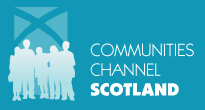Responding to Covid-19: SPRING Social Prescribing
/The “Connect-Well Service” launched by Spring Social Prescribing to adapt to social-distancing regulations imposed by Covid-19 has grown from strength to strength throughout the pandemic.
There are 34, social prescribers working across Scotland and Northern Ireland, serving 28 communities in socially deprived areas. 10 Social Prescribers are working in areas across Scotland. Each Social Prescriber contacts each and every client by telephone, text or video link every week. As restrictions begin to ease in this phase of lockdown, a small number have carried out socially isolated garden visits or walking groups.
An ongoing support link has been set up with GP practices across Scotland. Referrals to the programme are open and SPRING Social Prescribers are on-hand to provide much needed help and guidance throughout this challenging time.
Social Prescribers in Scotland noted an increased reliance on their services for emotional and mental wellbeing support. For clients and all members of the public, the prolonged period indoors is having a marked effect on the overall mental health of society.
In direct response to the mental and emotional strain of Covid-19 restrictions, the team at SPRING Social Prescribing have provided weekly “Connect Well” online workshops which address the feelings of despondency, isolation, loneliness, stress, despair, financial worry and challenges presented by clients each week. The classes are run every Wednesday and free to everyone over 18. Simply log on to www.springsp.org to register.
Social Prescribers across all regions and areas are facing increased demands on their time, energy and support services in relation to mental and emotional supports. The following case studies exemplify the impact of the pandemic on mental health on people of all ages.
SPRING into action
Michael, a 23-year-old man living in a small rural village in South Lanarkshire in Scotland, was referred to SPRING Social Prescribing at Heathy Valleys by his GP. Michael lives with his mother in a small isolated community with poor transport links. He has been unemployed since leaving school, with the exception of seasonal work at a nearby motorway service station. He kept in touch with a small group of school friends via social media but did not see them socially. In January, with the help and support of his social prescriber, Michael was taking part in weekly CBT sessions and was referred to a local employment training charity where he volunteered in the on-site café. He had started to feel optimistic about his future and confident about applying for work.
Since I started seeing my CBT therapist my head is clearer and I can start thinking about the future. I really enjoy my café work and it has given me the confidence to apply for a part time job. I feel more positive about my life now.
The lockdown measures have exacerbated Michael’s symptoms and he has been prescribed stronger anti-depressants by his GP. Michael has continued to be supported by Healthy Valleys Listening Ear service, receiving weekly support calls which he says have helped him cope with the “COVID-coaster” feelings he has been experiencing:
Each telephone call reinforces how I need to change my thinking from; Oh no! Not another day like yesterday, to; I’m looking forward to getting out in the sun for a walk with my dog. I’m feeling more in control of my moods and more optimistic.
Michael has also been connected with stress control and mindfulness classes online to help him better manage his mental health.
At Getting Better Together, Shott Healthy Living Centre, North Lanarkshire they have adapted services to include online coffee mornings and online meet and greets, launched virtual challenges such as the Land’s End to John O’Groats walking challenge and, like all Healthy Living centres, are involved in the delivery of the community response to Covid-19 and the transport and delivery of Covid-19 swabs at two local hospitals.
The team at GBT have been assisting the vulnerable and helping those isolating. An example of this is when new client was ‘shielding’ but hadn’t received a letter which was preventing him getting NLC food box and ‘priority’ shopping deliveries. His doctor stated he ‘didn’t fit the criteria’. The Social Prescriber contacted the GP on the client’s behalf, and after discussion she reconsidered and he received his letter the following day. The client had this to say in response:
I can’t ever thank you enough, I have been asking for this for weeks and you got it sorted so quickly.
Alleviating the impact of, social isolation, ill-health, food poverty and overcoming barriers to support services is an essential part of the ongoing work being carried out by Social Prescribers across Scotland.
More info
For more information on SPRING Social Prescribing see below:
SPRING website: https://www.springsp.org/
Their Twitter page: https://twitter.com/SPRINGSocialPre
For useful resources, guidance and funding for community groups responding to coronavirus in their communities visit our dedicated Covid-19 page on Communities Channel Scotland.
See more news and stories from community groups, including responses to Covid-19, on our spotlight page.

